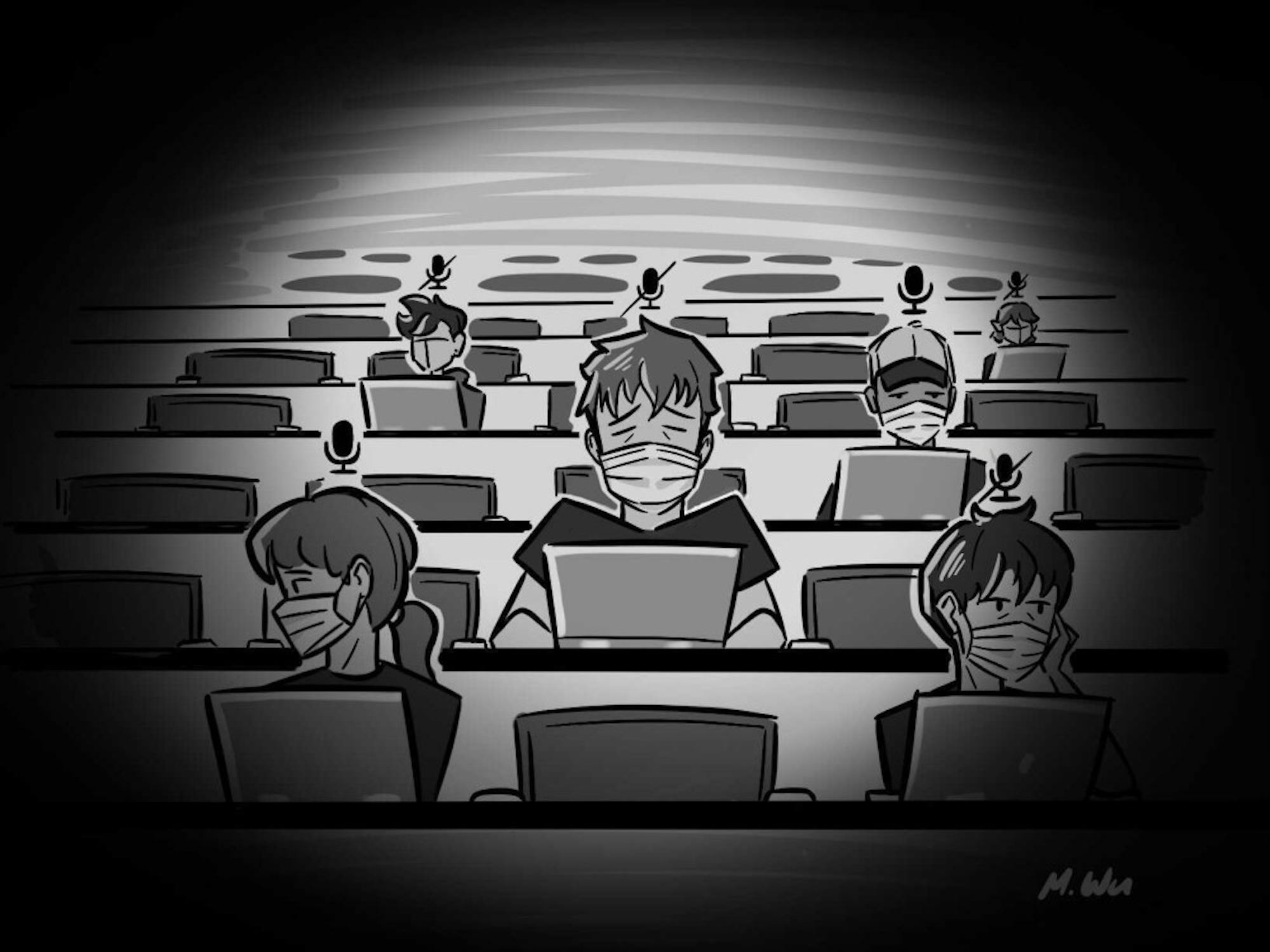A lot has changed since the start of the fall 2020 semester. Vaccines have become widely accessible in the United States, with 53% of the nation’s population being fully vaccinated. Tufts has changed its COVID-19 guidelines, easing us back in the direction of a somewhat more ‘normal’ academic year. Amidst a time of continued uncertainty and isolation, many students feel cautiously optimistic about what this school year has to offer.
The prospect of experiencing in-person learning is, for many students, a welcome and anticipated change. However, the academic transition from virtual to in-person classes presents a challenge to a student body that has learned almost exclusively from computer screens for over a year. Returning to in-person learning in a safe and sustainable way requires support from all members of the Tufts community. To prioritize student mental health and academic success, professors must be accommodating and flexible toward the needs of their students as we shift back into an in-person format. Students must also remain mindful of their actions and continue to follow all COVID-19 guidelines so that all faculty feel comfortable moving back to an in-person environment.
The switch to virtual learning was undoubtedly a difficult change as colleges across the country adjusted. As Zoom class became the norm, professors were required to adjust their classes to fit the boundaries of a computer screen. Recorded lectures, breakout rooms and virtual office hours — simulating an in-person environment — undoubtedly made it much harder to experience the full benefits of a course. These constraints were extremely frustrating for instructors who wanted their students to fully absorb the material they’re learning and for students who struggled to understand and retain class content in a virtual format.
According to a study conducted by Inside Higher Ed and College Pulse, around one-third of student respondents stated that they would not want to take another class through Zoom. This is entirely understandable when considering how difficult it is for virtual classes to replicate the social opportunities of in-person classes. Seeing classmates in a lecture hall rather than through a black square provides an opportunity to develop friendships, create networks and discover resources potentially not available online.
However, the transition back to in-person classes should not ignore the positive aspects of a virtual format. For students unable to attend in-person classes, having access to virtual attendance and recorded lectures can make it easier to keep up with course material. Furthermore, the adjustments made to assignments and tests in online classes have provided greater flexibility to match student needs and emphasized the importance of application and comprehension. The implementation of open book and take-home assessments, requiring students to have a deep understanding of the material in order to succeed, should be considered an improvement to the memorization-based model of the past.
A successful transition in academic life can only be achieved through an understanding of how virtual classes have affected professors and students alike. Many students haven’t stepped back in a classroom in over a year, and professors need to anticipate the learning curve they will face. Implementing the positive features of a virtual format to in-person courses will aid in this transition. Last semester many professors took crucial steps to accommodate the academic challenges caused by COVID-19, adjusting their syllabi and providing mental health breaks during class time. Maintaining this degree of support during the fall semester is crucial in helping students adjust.
Ultimately, however, the success of in-person activities depends immensely on the actions of the student body. Cases are rising in the United States, largely as a result of the delta variant. While Tufts is mandating the vaccine on campus, breakthrough infections can be contracted by vaccinated individuals, with Massachusetts reporting 3,704 breakthrough infections over the previous week as of Aug. 31.
As a community, we need to hold ourselves accountable to wearing masks and socially distancing when required, completing surveillance testing and following all other necessary guidelines. Having the ability to attend in-person classes is extremely exciting, but Tufts staff and faculty must feel assured that we as students are doing everything in our power to keep them safe. The transition to anything close to a ‘normal’ year depends on it.





